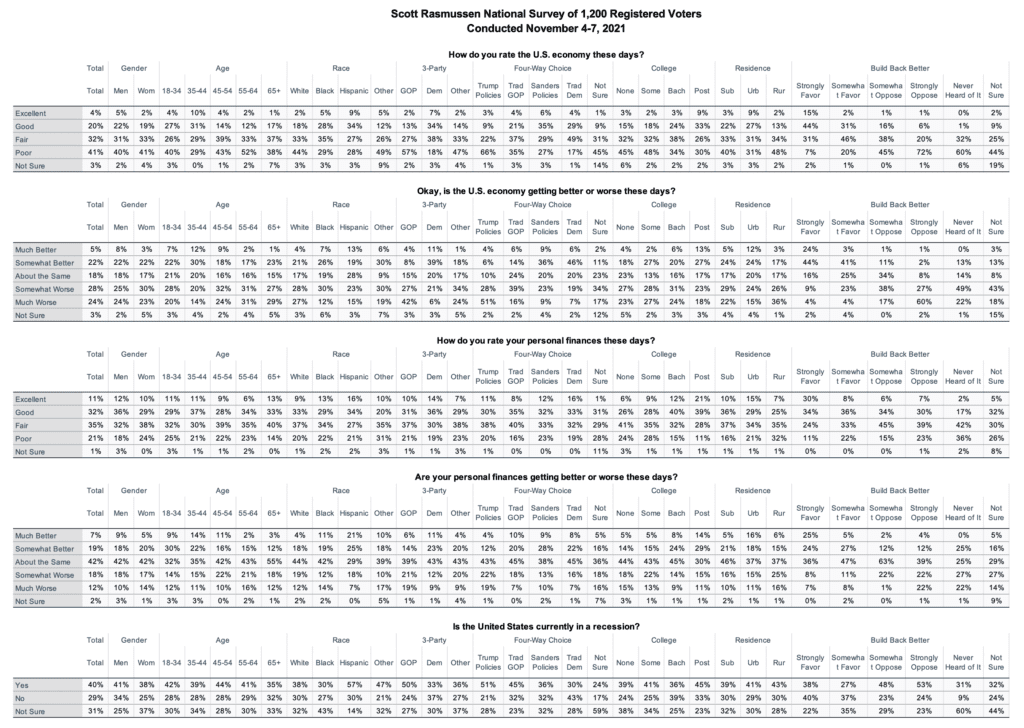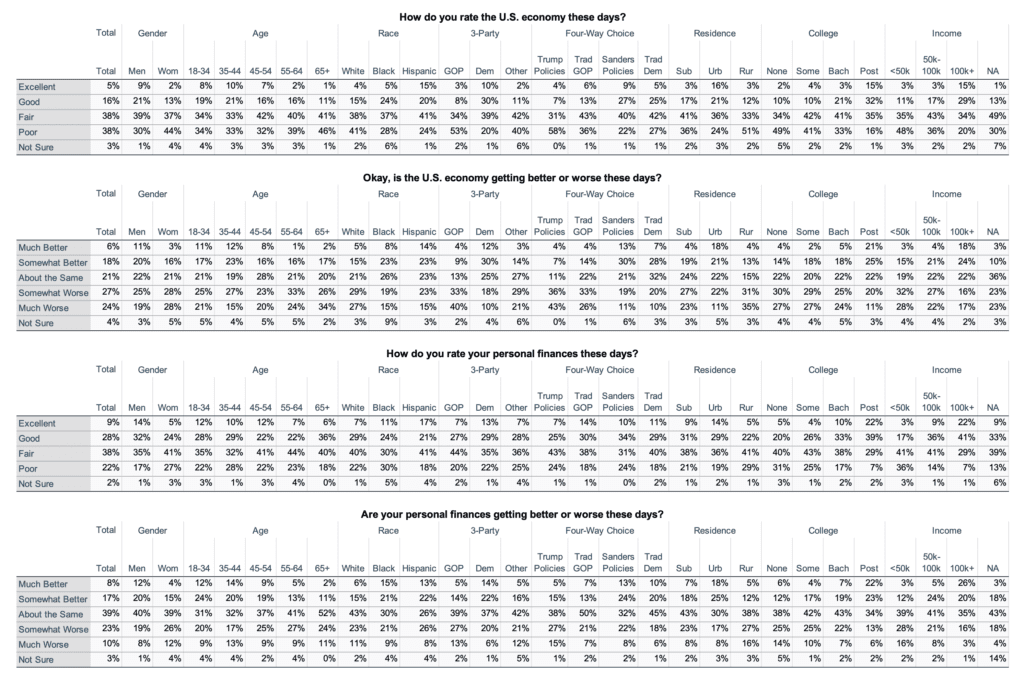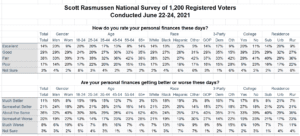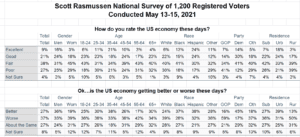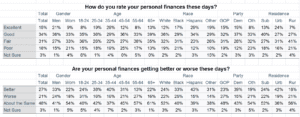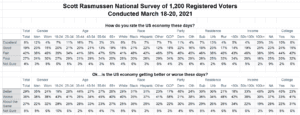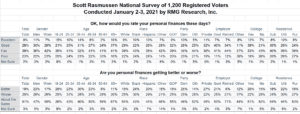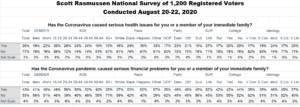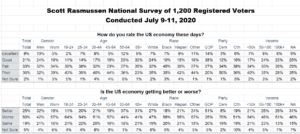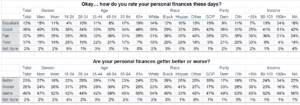Twenty-six percent (26%) of voters nationwide say their own personal finances are getting better. A Scott Rasmussen national survey found that 30% take the opposite view, saying their finances are getting worse.
Those results are marginally better than the numbers from a month ago. However, this is the third consecutive survey showing more pessimism than optimism. That’s a big change from late July when 31% said their finances were getting better and just 26% said worse.
The current totals include 7% who say their finances are getting much better and 12% who say much worse. That’s a more negative assessment than last month.
Forty-three percent (43%) of voters rate their own personal finances as good or excellent. That’s up six points from a month ago but down six since April.
As for the overall economy, just 27% believe things are getting better while 52% think they are getting worse.
SIGN UP to receive Scott’s free email newsletter.
CHECK OUT Scott’s latest polls.
Note: Neither Scott Rasmussen, ScottRasmussen.com, nor RMG Research, Inc. have any affiliation with Rasmussen Reports. While Scott Rasmussen founded that firm, he left more than seven years ago and has had no involvement since that time.
Question 1:
How do you rate the U.S. economy these days?
4% Excellent
20% Good
32% Fair
41% Poor
3% Not sure
Question 2:
Okay, is the U.S. economy getting better or worse these days?
5% Much better
22% Somewhat better
18% About the same
28% Somewhat worse
24% Much worse
3% Not sure
Question 3:
How do you rate your personal finances these days?
11% Excellent
32% Good
35% Fair
21% Poor
1% Not sure
Question 4:
Are your personal finances getting better or worse these days?
7% Much better
19% Somewhat better
42% About the same
18% Somewhat worse
12% Much worse
2% Not sure
Question 5:
Is the United States currently in a recession?
40% Yes
29% No
31% Not sure
Methodology
The survey of 1,200 Registered Voters was conducted online by Scott Rasmussen on November 4-7, 2021. Field work for the survey was conducted by RMG Research, Inc. Certain quotas were applied, and the sample was lightly weighted by geography, gender, age, race, education, internet usage, and political party to reasonably reflect the nation’s population of Registered Voters. Other variables were reviewed to ensure that the final sample is representative of that population.



